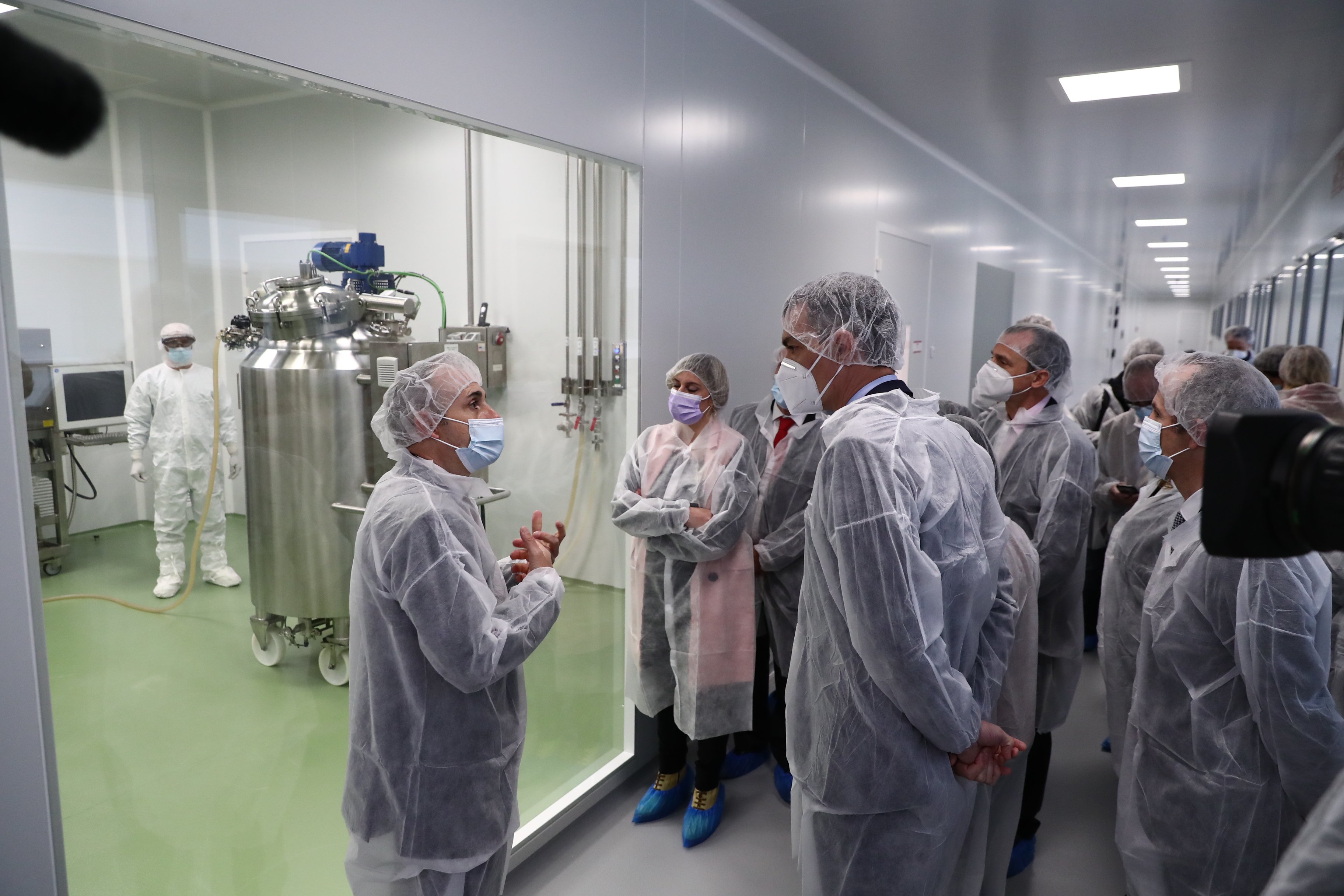The Spanish ministry of health's medicines agency has authorized clinical trials for a new vaccine against Covid-19 developed by the Catalan laboratory Hipra, located in the town of Amer, near Girona. Hipra's vaccine, PHH-1V, is the first Covid-19 vaccine developed in Spain to reach the stage of being trialed on humans.
As the Europa Press agency has reported, the phase now authorized will involve phase I/II dose escalation trials, which will be randomized, controlled and masked (that is, either the Hipra vaccine or a masked authorized vaccine is administered, so as to prevent its identification by both the patient and the research team), and the tests will mainly study the safety and tolerability of this vaccine, with secondary objectives of studying its efficacy and immunogenicity (the immunity response it generates over time).
To this end, several dozen volunteers will be recruited as soon as possible, from whom a sample group who meet the specified inclusion criteria will be selected.
Two recombinant proteins
The vaccine, according to the agency, is based on two structurally similar recombinant proteins (that is, proteins with different genetic origins that are brought together). One of these proteins corresponds to the alpha Covid variant and the other to the beta variant, and they form a single structure that is accompanied by an adjuvant - a substance that increases the body's immune response. This combination is able to generate an immune response to one of the S (or spike) proteins of the SARS-CoV-2 virus.
This basis is the same as that used for the Novavax and Sanofi/GSK vaccines, which are already in the evaluation process for their potential authorization by the European Medicines Agency (EMA). But unlike them, the Catalan vaccine contains proteins from two different variants.
In the study, volunteers will be divided into groups (cohorts) and doses will be administered, and the first cohort will begin with the lowest dose. If no safety problems have been detected after the independent evaluation of the trial, higher doses will be trialed. The health ministry explains that this dose escalation process, "common in this type of trial," is aimed at assessing the optimal dose for the vaccine. Each participant will receive 2 separate doses, 21 days apart.
Closely monitored
There is close monitoring throughout the trial of all volunteers and identification of cases of adverse events or SARS-CoV-2 infections. Preliminary analyzes are made with intermediate data in order to allow the research to continue.
However, the Spanish health ministry points out that "it will be necessary to wait until the clinical trial is completed in order to analyze all the data and draw final conclusions."
"These clinical trials are part of the requirements that all vaccines being researched must carry out to demonstrate their quality, safety and efficacy. Only after they have been evaluated and if they meet regulatory standards will they be authorized for marketing", adds the Spanish ministry.
Spain's prime minister Pedro Sanchez and health minister Carolina Darias visited the Hipra plant in April to see the company's vaccine research at first hand. The company hopes that the clinical trials are successfully completed in order to begin production in October this year, with the aim of launching the vaccine on the market by the end of 2021, subject to obtaining the appropriate authorizations.
400 million doses
The Hipra company projects that, if the trials yield good results, 400 million doses would be produced by 2022. By 2023, 1.2 billion doses could be reached. Storage temperature for the vaccine will be between 2 and 8 degrees C, which will facilitate its logistics and distribution. Hipra is also carrying out research in collaboration with the Barcelona's Hospital Clínic for the development of a vaccine against COVID-19 based on the virus's mRNA.
Main image: The Catalan laboratories Hipra during the visit by Spanish PM Pedro Sánchez last April / Fernando Calvo

